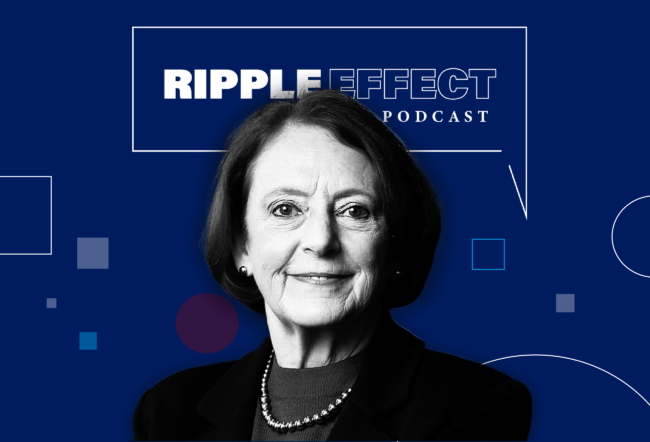In recent years, financial technology, or fintech, has dramatically expanded financial inclusion in China and elsewhere in Asia. Small and midsized businesses that have been underserved by banks now have access to capital, as fintech enterprises use the internet and mobile technology to reach those borrowers; leverage data analytics to build credible and innovative risk profiles to gauge creditworthiness, and are able to scale their reach exponentially with 24/7 customer windows and without the baggage of fixed-cost overheads that typically shackle traditional banks. Not surprisingly, the unmet needs of the underserved have provided huge market potential for fintechs.
Even as growth beckons, fintechs that want to be around for the long haul have adopted a measured approach, such as Credit China FinTech Holdings Limited, a rapidly growing fintech company that serves mainly China and has begun expanding elsewhere in Asia. “I have remained fairly disciplined and focused … to remain the same way and make the traction deeper and ensure that all of the different parts of the ecosystem are well oiled,” said Yew Kiat Phang, the company’s vice chairman and CEO. Credit China has worked to build an ecosystem for China’s nascent fintech industry with peer-to-peer lending platforms that connect investors with borrowers and data-driven creditworthiness evaluations.
The emerging fintech ecosystem has also created opportunities for firms like LegalZoom, a web-based platform that promotes inclusion and aims to make legal help accessible to all. “Our mission is democratizing law for everyone, from a householder to someone who wants to copyright a story that they just came up with to somebody who wants to patent an idea,” said Edward Hartman, a co-founder of LegalZoom, who is also the entrepreneur-in-residence at Simon-Kucher & Partners, a global consulting firm. Its online resources help entrepreneurs create legal documents and launch their businesses without having to necessarily hire a lawyer. Finding capital is one of three big challenges any new business faces, the other two being generating demand and regulatory compliance, he added.
Phang and Hartman shared their perspectives on fintechs and financial inclusion with Knowledge at Wharton for a new podcast series called “From Backstreet to Wall Street” being produced in partnership with Impact Investment Exchange, a Singapore-based organization that works to serve as a bridge between investors and development goals in Asia. (Listen to the first episode using the player at the top of this page.)
Credit China FinTech, which is listed on the Hong Kong Stock Exchange as Chong Sing Holdings FinTech Group Ltd., or CSF, provides third party payments, online investment, technology-enabled lending, and traditional loans and financing services. Today, it has more than 51 million users who generated transactions worth RMB 868 billion ($130 billion) in the first half of 2017.
“In 2014 and 2015, I wasn’t looking at building a business, but at how to make the entire ecosystem around online wealth management work.”–Yew Kiat Phang
Phang has led growth at Credit China since 2013, when he was drafted to guide it from its traditional banking roots to become a fintech company. He brought more than 20 years of experience in the finance and banking industry that included senior roles at Standard Chartered Bank and DBS Bank.
Initial Challenges
Phang faced a formidable challenge in that some 500 million of China’s 1.4 billion people did not have access to banking services, and most of them were poor and in rural areas. He launched Credit China’s fintech journey with a simple third-party payment system, similar to a PayPal, and from there expanded to offer investment and online wealth management products.
Managing risk was the prime task in the early years. “In 2014 and 2015, I wasn’t looking at building a business, but at how to make the entire ecosystem around online wealth management work,” said Phang.
China has become the world’s largest fintech market, and has many large players including Alibaba and Tencent. Credit China’s competitive strategy included emphasizing that as a listed company, it has a corporate governance structure in place. It also positioned itself selectively in its areas of strength, such as asset-backed investment products, where SME owners pledged their properties to allow Credit China to securitize their loans online.
Today, Credit China is an acknowledged standard bearer of fintech industry practices in China, and is intimately involved in shaping the country’s evolving regulatory framework. Credit China’s other big task was to educate customers, and it creatively used a two-minute video presentation on how online peer-to-peer lending and investment management work.
Disruption Disrupted
Hartman said that while fintechs have expanded financial inclusion to underbanked populations, the ride has not been entirely smooth. For one, default rates are higher than anticipated on peer-to-peer lending platforms. Also, instead of being disrupted by the fintechs, traditional banks have entered the peer-to-peer lending space to become the dominant players, he added.
“There’s really nothing stopping a Facebook from becoming a bank.”–Edward Hartman
Up ahead is more disruption. Hartman pointed to a recent innovation in India to allow people to send money to those in their WhatsApp groups. “It’s going to be coming worldwide,” he predicted. The ability to send money over WhatsApp (owned by Facebook) or Twitter could bring about “some real institutional movement,” he added. “There’s really nothing stopping a Facebook from becoming a bank.”
Only for the Fittest
Phang said China’s fintech industry has seen Ponzi schemes and weak business models, and that about 100 online wealth management platforms in China went out of business in 2015-2016. Through a series of moves beginning January 2016, China’s government has tightened regulatory oversight of the fintech space. It also went after fintech firms that offered excessive and unsustainable returns.
“Many of the new financial systems don’t have the safeguards,” said Hartman, listing another area of concern. “And they’re enormously powerful.” He added that while fintechs bring financial inclusion, regulation and oversight are essential to protect investors. “It’s freedom that comes at a price.”



